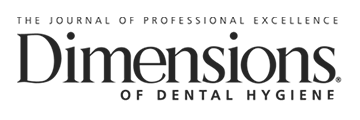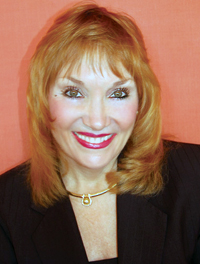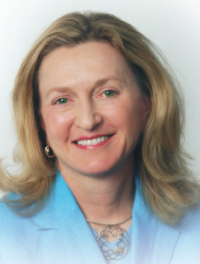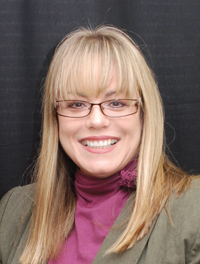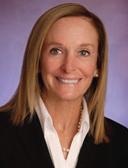
Kylie J. Siruta-Austin, RDH, MS, ECP-III, works clinically for Community Health Ministry in the Healthy Smiles Outreach Program in Wamego, Kansas, and Total Care Dentistry in Junction City, Kansas. In addition to her dental hygiene license, Siruta-Austin has the Extended Care Permit I, II, and III credential, which enables her to provide school-based services to children in local schools serving children in grades kindergarten through 12. She also provides portable dental hygiene services to patients in nursing homes and centers for patients with developmental disabilities. More than half of the pa tient population at Total Care Dentistry is composed of children covered by KanCare state insurance (Kansas’ Medicaid program). The practice is one of only five in the community that provides services to children covered by Medicaid.
Siruta-Austin also serves as a consultant to the University of Missouri- Kansas City (UMKC) School of Dentistry, working collaboratively with UMKC faculty members on data entry and analysis, course design and instruction, and research publication. Additionally, she teaches the nutrition-biochemistry portion of the American Dental Hygienists’ Association Dental Hygiene Board Review course and is the co-director of two continuing education courses offered through UMKC.
What strategies do you use to keep from getting burned out from providing patient care every day?
When contemplating starting a career in dental hygiene, I vividly remember shadowing dental hygienists already in the field who spoke of the versatility and flexibility offered by this profession. That was very appealing to me and, even now, I credit those qualities with keeping me excited about going to work each day.
Fortunately, I practice in a state that is progressive in its dental hygiene scope of practice. I took full advantage of this and obtained my Extended Care Permit I, II, and III credentials through the Kansas Dental Board. This allows me to practice independently in nontraditional settings with a wide variety of patients. From elementary schools to nursing homes to centers for patients with developmental disabilities, it is nearly impossible to become complacent when each setting offers a new challenge and a new opportunity to make a meaningful impact on my community. I also practice part-time in a dental practice in which more than 50% of the patients are covered by state insurance. We are one of the few private practices in the area that accept this insurance, so nearly all patients present with a significant need for preventive care and ongoing education. Both settings present opportunities to truly make a difference.
To me, it is about so much more than the actual treatment provided—it is teaching patients lifelong habits that will lead to improved oral and overall health; motivating them to implement positive lifestyle changes; and seeing patients on a regular basis and getting to know them. The point when I turned my focus to positively impacting vulnerable populations and utilizing each patient encounter to make him or her feel valued is when I realized that it would be nearly impossible not to be excited about going to work each day!
What is your advice for oral health professionals who wish to work in a nontraditional practice setting?
My best advice is to build a network of like-minded oral health professionals. Every opportunity that I have been given to work in a non-traditional practice setting emerged from a “connection” to another dentist or dental hygienist who worked in that setting and reached out to me. Involvement in professional organizations, networking via social media, and attending continuing education courses all provide dental hygienists with excellent opportunities to brainstorm, and share goals and ideas for our profession. Don’t be afraid to share your career goals and aspirations—these simple conversations might be the springboard to an opportunity that you never knew existed!
How do you balance your academic appointments with your outreach and clinical work? What advice can you share for striking a balance?
Achieving a balance among personal and professional responsibilities is definitely a challenge. However, I am motivated by the positive impact I am making in my community and my profession. I would advise others in similar situations to begin by creating a written priority list. Write down everything that you value (including both personal and family time and professional work). Then, note the estimated time you’d like to spend on each valued item each week. Evaluate that list and eliminate those that do not rank high in your list of priorities and then create a schedule that “fits” those that do. I’ve always been mindful of not becoming a “jack of all trades – master of none!” Don’t be afraid to get rid of items that take up your time, but are not fulfilling – that will lead to burnout easily! Make time for those things that are important to you and life will never seem busy, overwhelming, or out of balance!
What has been the biggest obstacle in delivery of care in extended care function settings?
As with anything, change is scary to many people! Both patients and other oral health professionals may initially seem resistant to an alternative practice model, such as delivering care in an extended care setting. Therefore, the biggest obstacle for me has been to educate everyone involved (from the patients, to the nursing staff at schools and nursing homes, to sponsoring dentists, to parents/caregivers, etc.) of the vast benefits that exist using this model to deliver care. Every barrier that has previously hindered certain populations from the preventive care needed—such as lack of insurance, income, transportation, etc.—is eliminated in extended care settings. This lack of understanding created a big obstacle initially, but as more people experience the benefits of non-traditional models, they begin to become advocates as well.
What is the best professional advice you ever received?
The best advice I’ve ever received is to “Do something that you love and you’ll never work a day in your life!” This profession is so versatile and can be utilized it in so many ways. I’ve found a way to use my background in dental hygiene to serve in academic appointments, extended care outreach settings, and clinical practice. I strongly believe that my services are far more rewarding to me than they are to those patients that I’m serving. I love the flexibility that this career offers, the variety I’ve been able to establish, and the amazing people that I get to work with each day.
